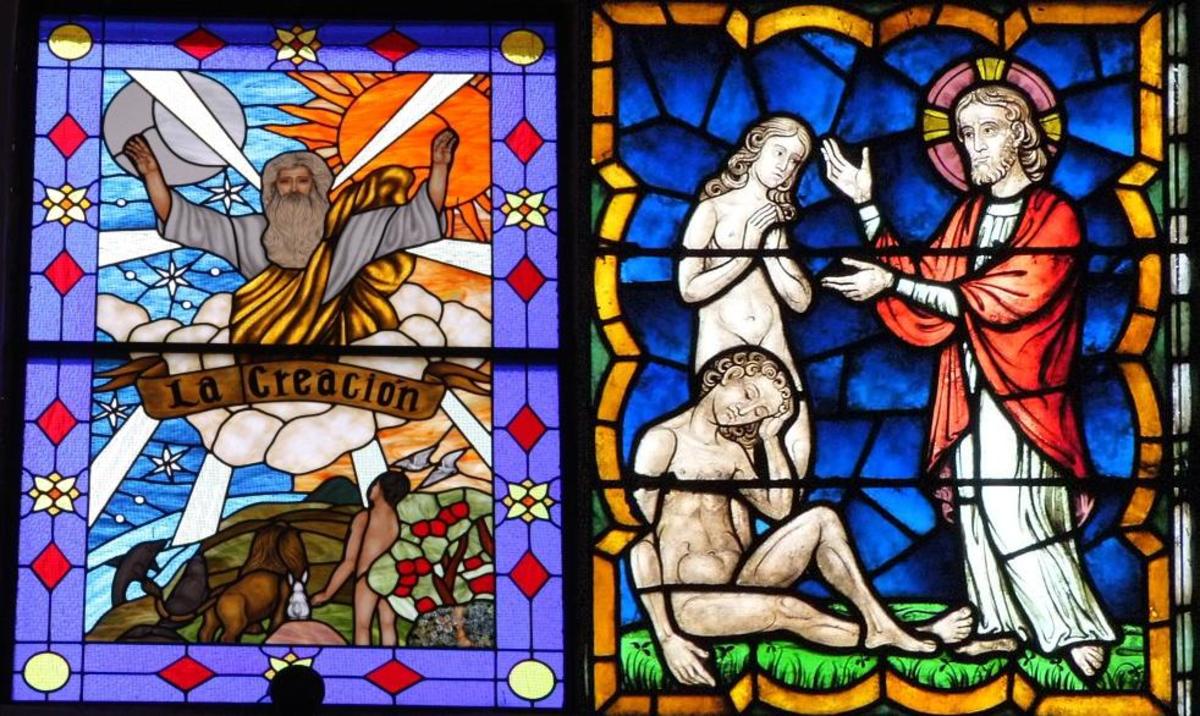What is God? An agnostic perspective
How can we define God? Pantheism vs. Theist Analysis
It has been almost two years of becoming agnostic, after several years of questioning and doubting my belief in Christianity. At the beginning I got a bit “anti-Christian”, but I have come to understand that religion is something that is very complex and depending on the person, it can mean everything to them- at least in terms of “functioning in life”.
I was Protestant and during almost 20 years I tried to live my life as close to the figure of Christ in the Bible as possible. Yet, perhaps in part because of that, I was not able to make many friends in the church because the behavior they displayed was not compatible to what I expected. From being rude, to talking about mundane things, it was always strange to me that in the place where I expected to meet people with the so called Christian values, people were acting just like the ones in the “world”. (Funny thing is that I was not fan of making friends with people “of the world”, but now I realize the quality of people outside the church was not as bad as I thought).
I did not have a good compatibility with Christians in my extended family either. Perhaps a seed of doubt was within me during all the time I was a Christian, and different experiences in life, especially in the first years of the present decade finally carried me away from the religion.
What is Christianity? For some people it is (so they say), a way of life. Some deny it being a religion (although it is certainly a religion because of its characteristics). In reality, like Islam and other religions before and present in this planet, Christianity is a mix of philosophical views with mythology. The latter offends some Christians, but the evidence of the mythological presence in Christianity cannot be denied. Both traits are not really offensive or bad, meaning that Christianity per se is not a bad thing, as some militant atheists claim. Do you think all Christians are bad people? Fundamentalists tend to be judgmental, hypocrite, and egocentric; they believe their personal description of Christianity is the only one that can be considered true (because Christianity is divided within itself) and everything else is “a lie of the devil”. But this is not what you hear from all Christians. The mythological component of Christianity can be most noticed in the Bible: the talking snake, rocks that obey a man, a man walking over water, stopping the sun, multiplication of fish and bread, two resurrections, and a healing snake statue are just some examples; why do I considered that mythology? Obviously, none of us, or any of our ancestors before us through written history have really experienced this kind of events. The Trinity is another mythological component which I shall explain in the best way possible.
The figure of Jesus in Christianity represents love and altruism. Did Jesus exist? Maybe a prototypical Jesus existed- someone whose the figure of Jesus is based on. Maybe, if real, he was a special man, similar to Gandhi or Gautama. I don’t think the real Jesus would have done all the things the gospels say, in a literal way. But most of the known story of the mythological Jesus is mostly based on love, forgiveness, altruism, peace, hope… positive things. The Father (God) represents total peace and happiness. In the Bible, the passage that says that you can only get to the Father through him, it can be easily mean that you can become completely happy and fulfilled by doing the right thing. There is no literal father up in the sky or in another dimension, as far as we can know. The Holy Spirit represents the enthusiasm, the energy, the desire to do the right thing.
The Bible has lots of symbolisms and yes- some of the apparent historic text has lots of things we cannot really follow, like incest, unjustified genocide and possibly pedophilia. The story in Judges 11 is simply gruesome and I can’t think of any way we can get something positive from that chapter. This is not to bash the Bible, but to show that religions are not free of human “contamination”, and therefore following religions in a fanatical way is dangerous to society.
That’s the point: religious fanaticism is bad- very bad. For some unknown reason, psychiatrists don’t dare to categorize religious fanaticism as mental illness. It has long been debated, but history has shown us, time and time again- through centuries, that obsession for religion can be massively lethal. We don’t see it a lot with Christianity today, but it happens in the Islamic World. Religious fanaticism endorses sexism, violence against women, intolerance, exclusiveness, arrogance, fear to question and to learn, ignorance, and a slave-like mentality; it is something that has absolutely nothing positive on it. Fanatics deny evolution, our relationship to primates, the age of our universe, and worst of all- human rights for everybody. But while all of this is true, it is not really to blame into the mythological and philosophical cores of religions; it is mostly because of human imperfection and selfishness.
Religions like Christianity and Islam are the majority- almost half of the Earth’s population adhere to one of them. Yes, because of their history it may be reasonable to believe that their structures have a lot to do with the evils that happened and continue to happen. But are these structures born from something supernatural, or are they human inventions?
Let’s go now to analyze God. What is God? Can it be reduced to a supernatural deity? Or can anything be considered “God”? In terms of religions, gods are supernatural deities that care about humans. In Christianity and Islam, God only cares about humans- they don’t care too much about dogs, horses, plankton, gorillas, or any other animal besides humans. Here is we can get the first hint that something is not right about the “reasonability” of God. Religious gods are way too human. And it has been proven that Earth is not the only planet in the known cosmos. A human-like God who created the entire cosmos is absurd. We are not the only living organisms; animals have their way of communication, even if it is not as advanced (according to us) as ours. How do we know if dogs, cats, and other animals, on their way, believe in the same God? Will they god be human-like? No, maybe they will be similar or derived from their species.
The next thing about reasoning about God is to ask why don’t we all serve the same deity. Not even Christians serve the same type of god: Protestants don’t call Catholics Christians because they think they are wrong. So not only God limits to human perception but in limits to a specific group of humans. Each group begins to demand they have the truth and when fanaticism is present, you know what happens.
So, this absurd description of God cannot be true. There is not a single proof out there that certifies the Christian Protestant God, or the Islamic Shiite God, or the Hinduist group of gods are the real one(s). Can we say after this that there is no God? Well, there are no religion-derived gods. That’s the most reasonable conclusion after in-depth analysis of religions. Now, let’s go to Einstein’s view of God. Einstein has been considered pantheistic in almost all biographies about him. Of course, atheists sometimes claim him as one of them because he did not believe in religious gods. Pantheism and atheism deny the existence of independent, supernatural gods, and pantheism basically equates the entire cosmos, to a deity. In some way pantheism is atheistic when it comes to supernatural elements. But atheists typically deny ALL gods, so pantheism and atheism cannot really be considered the same thing. Einstein ‘believed’ that God could be considered the order of the cosmos, proven by the laws of physics. We know that laws in physics are not to be debated; E=mc2 is not an invention or approximation. The behavior of nature and the cosmos itself can be proven by mathematical models. Of course this does not mean that ‘God’ meaning our cosmos has a conscience, so… why do people pray and worship?
We can say that supernatural gods are, essentially, a mix of the pantheistic god with our own conscience. When born-again Christians (the ones who can be really considered that way) talk about how they became so, you can mostly say they simply had an encounter with their conscience. “I was doing wrong things but then something happened and now I am striving to be better”. We really don’t need supernatural encounters for that. Most of these so called encounters tend to happen when they face really bad situations, such as being almost killed, arrested, in prison, or caught doing something wrong or evil. You don’t see evil people suddenly changing to become good if their evil acts are not being detected. Most of the time people become better when bad things happen to them. People don’t change when they don’t feel there is a need to change. That’s our nature.
Can we be so sure that there are no supernatural deities? Because our cosmos has not been finally understood- we don’t know yet what happened prior to the Big Bang, for example, we cannot have an absolute answer- but at least in my opinion, it is very, very improbable that deities who “created” the cosmos, exist.









